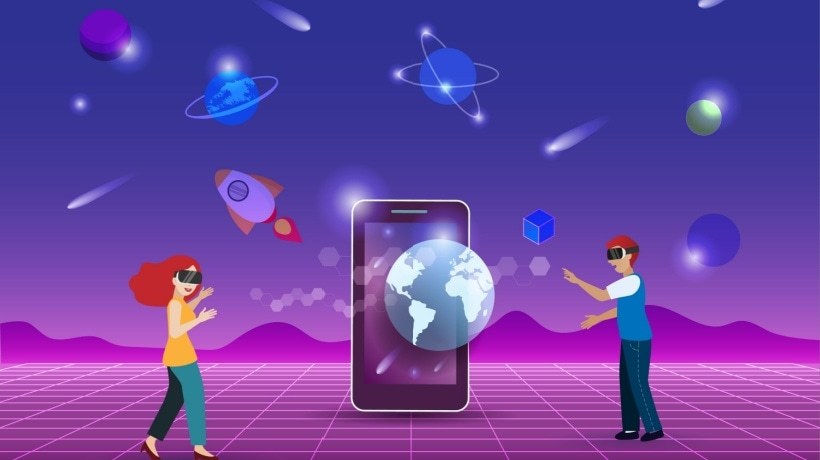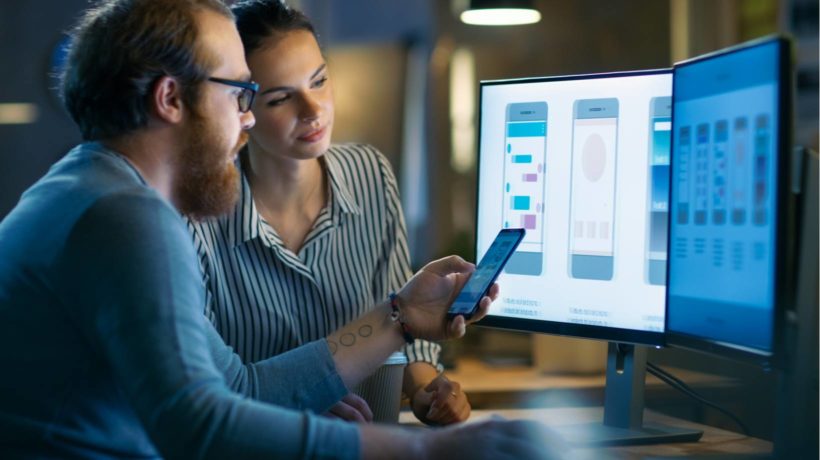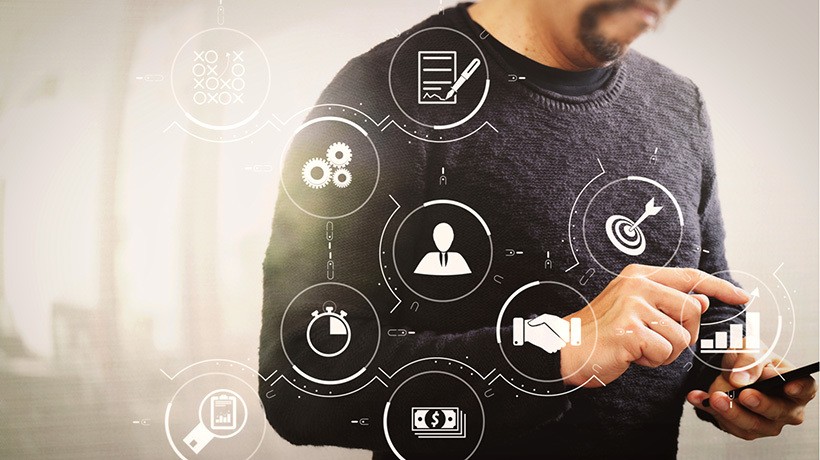Mobile App Technology In The Education Industry
The education sector has always been at the forefront of change and transformation. In more than one way, mobile technologies have played the role of game-changer in present-day educational sectors. The adoption of mobile learning apps and remote learning technologies has gained momentum in recent days, particularly following the global pandemic-led crisis that forced schools and educational institutions to shut down for an unspecified amount of time.
Thanks to cutting-edge learning technologies, mobile learning has continued to gain popularity and traction all through these years, however, the pandemic-led crisis and lockdown of educational institutions have further fueled the growth of remote learning apps. During the lockdown, using remote video conferencing tools for attending classes became the de facto practice for students, teachers, and educational institutions.
The integration of Virtual and Augmented Reality into educational apps, the presence of a connected ecosystem of gadgets across classrooms and laboratories, and the emergence of interactive learning apps have created a smarter learning environment, which was unthinkable even just a few years ago.
Throughout this article, we are going to explain the key ways innovative and cutting-edge mobile technologies are transforming education and learning.
Accelerated Learning Solutions
In a traditional educational setting, the learning mechanism and tools follow a fixed trajectory created for all learners. In contrast, mobile learning apps can be highly personalized by addressing the specific learning needs and capabilities of learners.
For deserving learners who can catch up faster, mobile learning apps can facilitate accelerated learning and help them complete a vast curriculum well before the so-called specified time allocated in a classroom setting.
In this respect, we can take the example of the Duolingo app. This app, which is already popular for learning foreign languages, allows a learner to take as many steps and course materials as needed, depending upon individual learning capacity. One can learn at a slow or fast pace, depending upon one's individual capacity and nothing else.
Cognitive Development
Unlike traditional eLearning solutions, which come with their specific constraints related to the curriculum, mobile learning apps by facilitating more personalized ways to communicate with learners on different subjects and skills can play a great role in cognitive development.
Mobile learning apps by their very nature can help learners with challenges and solutions for solving a variety of problems. The continuous supply of materials and tools in improving problem-solving through interactive features can really make a significant contribution to the cognitive development of learners.
A Connected Ecosystem Of Gadgets
The Internet of Things (IoT), or the connected ecosystem of gadgets, like every other space in our daily lives, has also greatly impacted educational apps, particularly mobile learning solutions. In today's classrooms and laboratories, the connected gadgets allow for smart interactions with learners. From the use of connected whiteboards to smartwatches and bands creating real-time alerts for the learners, to connected drones offering real-time views of outdoor environments, the connected reality of gadgets continues to transform the learning experience as never before.
Interactive chatbots are also playing a great role in facilitating smarter ways of learning. Thanks to chatbots, learners now can make a query and get quick answers to a problem in real time. Chatbots also help in breaking down a long and arduous lecture into small bite-sized content based upon relevant queries. Chatbot communication can further emit information and knowledge based upon the learning ability and the maturity of the student. Chatbot communication can also help improve the understanding of students.
Artificial Intelligence
Artificial Intelligence (AI) is increasingly playing an important role in improving the educational experience. AI is helping curate mobile learning apps to facilitate a better learning experience.
Thanks to AI, eLearning apps can give individual attention to learners and provide them a highly personalized learning experience. With the help of AI, the learning experience can be highly tuned to the ability of individual learners.
Gamification
Another important way eLearning apps are improving the learning experience is through gamification. Gamification refers to competitive game-like activities that can be incorporated within a mobile learning app to aid learning in a fun-filled and entertaining way.
The gamification techniques, apart from increasing the fun value of the learning process, also create additional motivation for the learners and help them concentrate better on their educational curriculums and content.
Traditional education no longer holds many promises for learners who are already versed in modern tools and techniques. Even in today's classrooms, learners prefer to use their mobile apps every now and then for a variety of purposes. For example, from looking for new stock of words, a quick topic search, or just to learn the anecdotes corresponding to a subject, it has been the practice to browse apps to get instant help.
No wonder the standard of education is continuing to get a facelift because of emerging technologies. Thanks to the integration of the latest technologies, the educational standard has been uplifted to a great extent. Mobile learning apps, in particular, fast-tracked the learning process, as any piece of information can be searched and accessed in real time, without the slightest delay.
Another crucial advantage of mobile learning apps is the access to informal learning. Instead of dealing with nerve-racking homework tasks, students can play a simple and engaging game, and in an interactive manner can learn things without having to go through the formalities.
Conclusion
With so many advantages and value propositions, mobile learning apps are likely to stay on top of the trend. As mobile learning apps continue to rise in popularity, we can expect more traditional courses and curriculums to integrate mobile learning into their educational approaches.









